The third UArctic Congress has convened online over the past few days, and the Læra Institute has played an active role in the Congress programme. We've had the privilege of sponsoring three Congress sessions related to our core mission supporting Circumpolar Studies teaching and learning — leading to some excellent discussions!
Our first Congress session was a round-table meeting on Sunday 16th May, at which we officially launched the Læra Institute. Læra Institute Academic Co-Director Gary Wilson began the meeting with a presentation introducing the Læra Institute and our work. An open discussion followed, at which participants discussed ways to get involved with the Læra Institute, as well as Circumpolar Studies in general. We were pleased to hear that some participants in the meeting would alreadt like to collaborate with us to share educational resources with UArctic colleagues. Watch a video of the launch below, or on our Vimeo channel.
The discussion of Circumpolar Studies continued later that day in our second Congress session, a round-table meeting on the UArctic Circumpolar Studies programme, sponsored in collaboration with UArctic. Diane Hirshberg, Vice-President Academic of UArctic, began the session with a presentation introducing a new survey of UArctic member institutions to determine how they are teaching Circumpolar Studies today. The results of this survey will be important to us at the Læra Institute as we seek to gather and codify new practices and best practices in Circumpolar Studies teaching and learning. Watch a video of the launch below, or on our Vimeo channel.
On Monday 17th May, our Academic Co-Director Heather Nicol and Managing Director Anthony Speca took part in a third Congress session — this one a panel discussion on 'Focus on "Science" and Shortage of "Education" in Arctic Policies?', convened by Lassi Heininen of the University of Lapland. Prof Heininen and his colleagues have published a detailed analysis of the Arctic strategies and polices of the states and Indigenous organisations involved in the Arctic Council, as well as the Arctic Council's own declarations. They identified a gap between how often these documents mentioned science, and how rarely they mentioned education — a curious finding that provided the basis for a fascinating conversation of the role of education in understanding and making good policy about the Arctic, and about the role policy plays in promoting such education.
Later that day, the Læra Institute sponsored our own panel session on 'Innovation and Pedagogy in Circumpolar Studies'. We heard three presentations at this session:
- 'Circumpolar Studies was, is, could be...' — a discussion of the past, present and future of UArctic Circumpolar Studies from Amanda Graham of Yukon University, one of the members of our Steering Committee, in which she proposed a vision to inspire not only the work of the Læra Institute but also all faculty and students engaged with Circumpolar Studies
- 'Circumpolar Experiential Education and Inquiry' — an introduction by Michael Kaplan from Alaska Pacific University to his outdoor education projects, in which he addressed whether outdoor adventure and experiential education can count as disciplinary knowledge
- 'Model Arctic Council for sustainable development' — a proposal from Anthony Speca of Polar Aspect, who also serves as our Managing Director, that experiential learning through Model Arctic Council for schools and universities can help to promote Arctic sustainable development
Watch a video of the panel session below, or on our Vimeo channel.
Many thanks to UArctic, and to the UArctic member universities in Iceland, for organising and hosting the Congress. Please don't hesitate to

